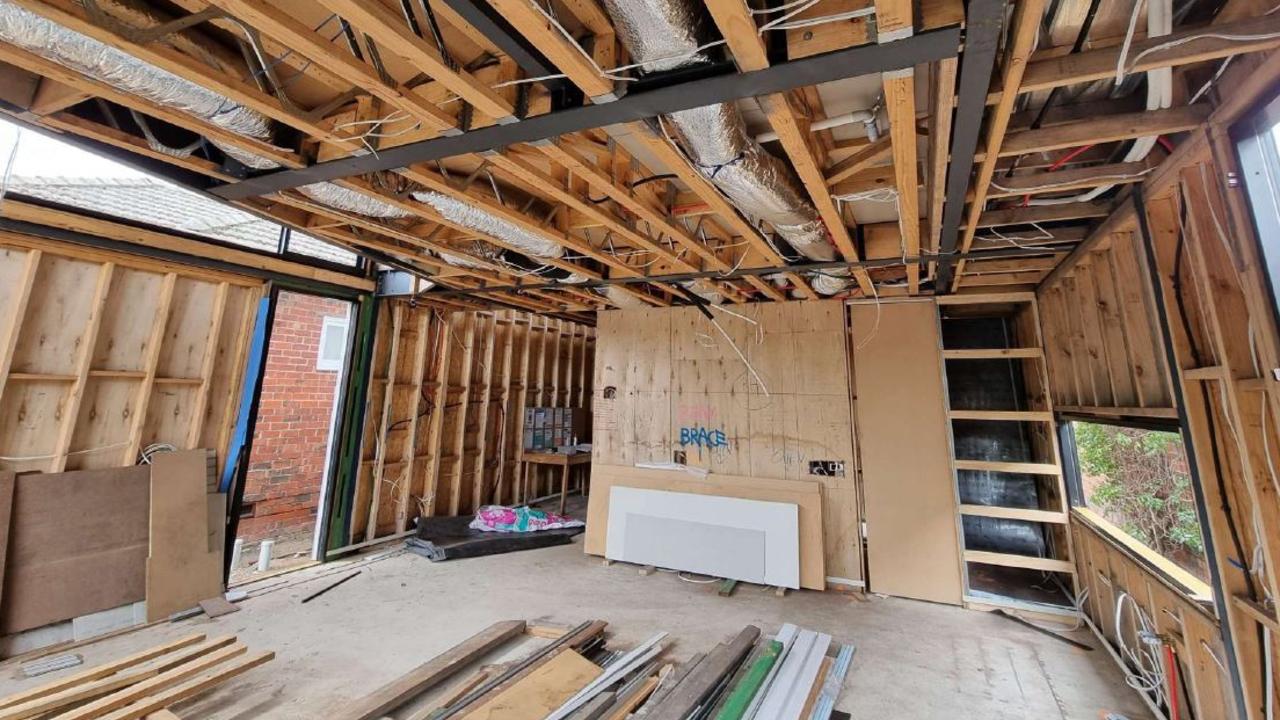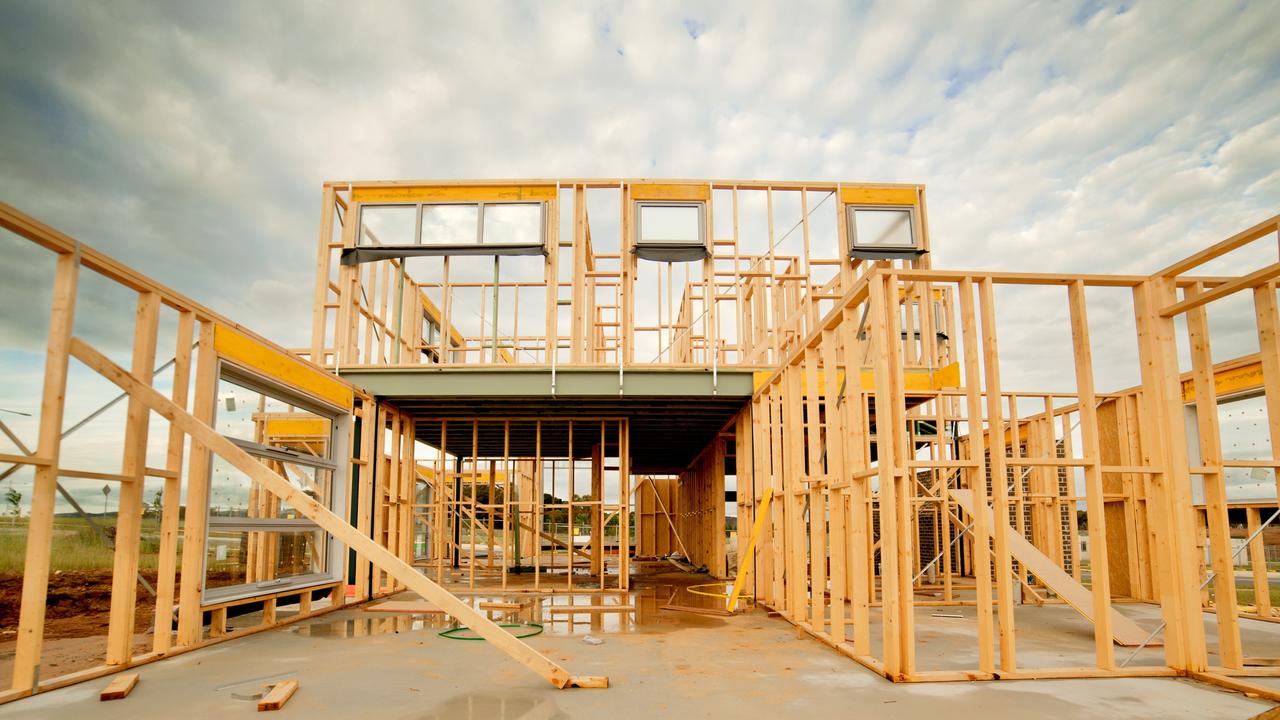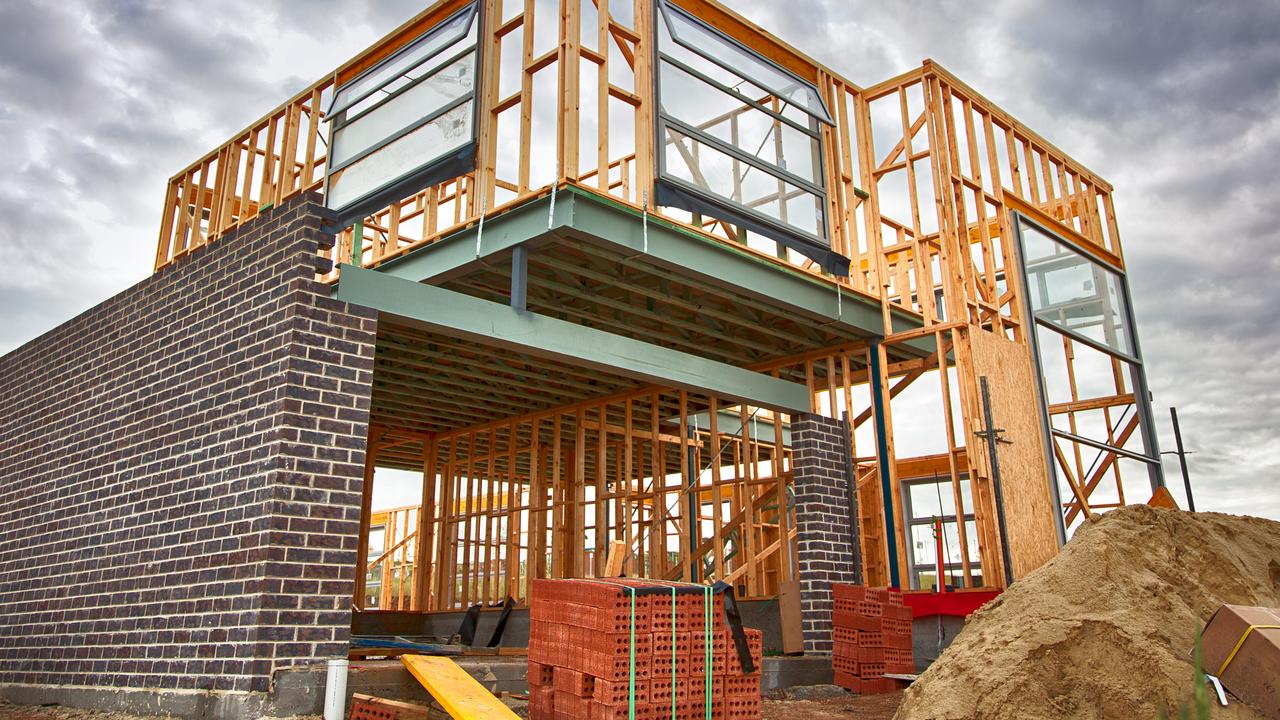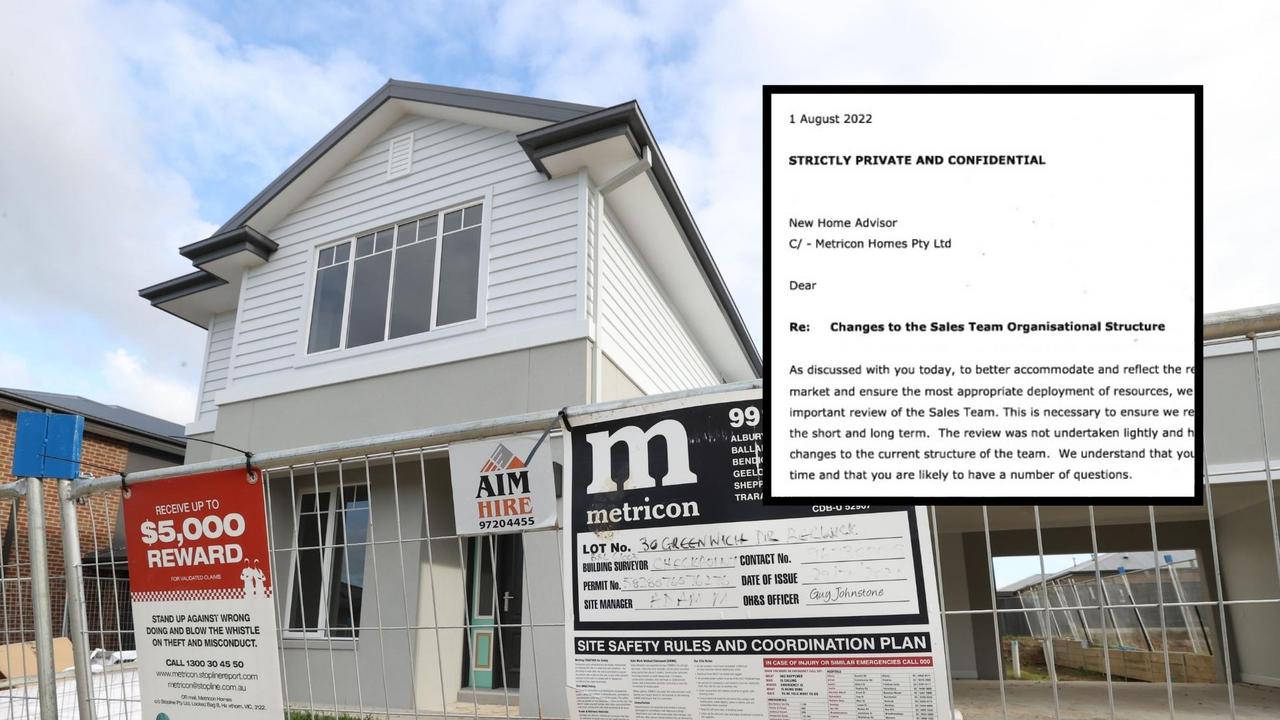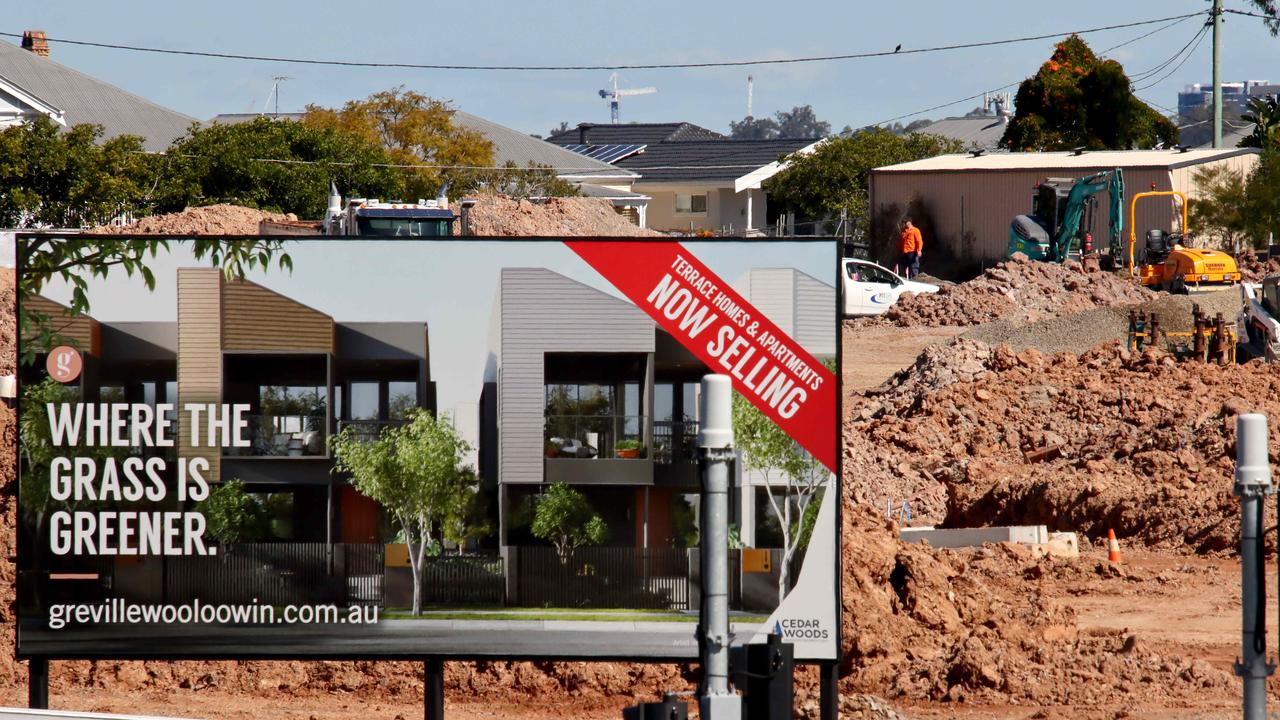Construction giant Metricon has unceremoniously sacked the majority of its NSW sales staff via Microsoft Teams in the latest sign that the struggling company is teetering on collapse.
David Shorten, Metricon’s NSW state sales manager, informed staff at the Monday morning meeting that numbers would be cut to just 18, from roughly 60 currently, with redundancy payouts offered to those unable to be redeployed.
About 15 trainee sales consultants have also been terminated with no offer of redeployment.
“To better accommodate and reflect the requirements of the current market and ensure the most appropriate deployment of resources, we have undertaken an important review of the sales team,” Mr Shorten said in a statement read out in the Teams meeting.
“This is necessary to ensure we remain competitive in both the short and long term. The review was not undertaken lightly and has resulted in proposed changes to the current structure of the team. We understand that you may feel anxious at this time and that you are likely to have a number of questions. Under the proposed structure, the number of new home advisors will be reduced to 18.”
The affected employees were given until midday on Wednesday to offer any “thoughts, insights or feedback you may have regarding the proposed structure and approach”, with employees to be told if they’re being sacked by the end of the week.
Mr Shorten said Metricon would “select the most appropriately skilled individuals to occupy the positions moving forward” but warned “options are limited” for redeployment.
“In the event that you were unable to be redeployed to a suitable alternative position within the notice period, you would receive the relevant redundancy entitlements if they were available to you,” he said.
Employees who are offered one of the remaining roles but choose not to accept may not be entitled to a redundancy payout.
One employee, who asked not to be identified, said he had been expecting the announcement after Metricon closed its HR portal last Friday.
He said there had been some staff turnover recently with “people abandoning ship to go to competitors”, and those who stayed “basically had the rug pulled out from under them” through “no fault of their own” after believing the company’s repeated public denials that it was facing difficulties.
“It has not been received well by some of them,” he told news.com.au. “I’m a little bit burned by the whole situation.”
The company’s largest home builder was plunged into crisis in May amid reports it was on the verge of financial ruin and engaging in crisis talks with the Victorian government, following the sudden death of its founder Mario Biasin.
Acting chief executive Peter Langfelder has repeatedly shot down those allegations, but a question mark still hangs over Metricon’s future despite the company’s directors injecting $30 million into its business to allay fears about its survival, and a rescue deal being struck with Commonwealth Bank.
Last month, Metricon listed nearly 60 display homes for sale across NSW, Queensland, South Australia and Victoria, worth a total of around $65 million.
The Sydney employee said “events have snowballed” since Mr Biasin’s death, adding he was skeptical the company could survive.
“We still don’t have homeowners’ warranty insurance,” he said.
“We have not been taking deposits for the last 10 weeks. It should be known. People are still waiting for builds. I’m glad we haven’t been able to take deposits – do you want to be the guy that takes someone’s $20,000, $30,000 life savings and the company goes bankrupt in three or four weeks’ time?”
Reached for comment on Tuesday, Metricon confirmed it was “process of an internal restructure of the business, with an increased focus on delivering homes to more than 6000 Australians whose houses will be constructed this year”.
“To better accommodate and reflect the requirements of the current market and ensure the most appropriate deployment of resources, Metricon is working to appropriately reduce its sales and marketing capability while it focuses on the construction and delivery of more than 6000 homes,” a spokeswoman said in a statement to news.com.au.
“We have commenced a consultation process with our people. This process is proposed to lead to a reduction of personnel and redundancies across the national business.”
The spokeswoman said 2020 and 2021 saw record demand for homebuilding and that Metricon “expects demand to settle at pre-pandemic levels”. “As a result, the business will rebalance towards construction on homes it is currently building and the thousands more in the pipeline – the biggest volume in the company’s history,” she said.
The impacted roles will be at the “front-end of the business, predominantly in sales and marketing roles, representing approximately 9 per cent of the national workforce”.
“With the headwinds buffeting the industry, specifically labor costs due to competition for skills, combined with present global material cost hikes and with our very strong existing pipeline of work, we need to carefully balance the current pipeline of new builds with the construction side of the business,” Mr Langfelder said in the statement.
“We are working to restructure our front-end of the business given the current climate and the need to move forward efficiently. We are committed to looking after any of our people who may be impacted by these proposed changes, and they will continue to have ongoing access to the company’s support and mental health services.”
Mr Langfelder said Metricon was rebalancing the business’ focus over the next 18 months on executing builds as quickly and efficiently as possible whilst maintaining equilibrium in the pipeline.
“We have previously said that our company has a proven history of success and remains profitable and viable, with the full support of our key stakeholders – this remains the case today,” he said.
Mr Langfelder said Metricon was still expected to continue to contract on average 100 homes per week, in line with pre-pandemic levels. “Our future construction pipeline shows no sign of slowing down with more than 600 site-starts scheduled for 2023,” he said.
The spokeswoman did not address the claim that Metricon was not taking deposits.
The Australian building industry has been plagued with escalating issues that have already seen Gold Coast-based Condev and industry giant Probuild enter into liquidation in recent months, while smaller operators like Hotondo Homes Hobart and Perth firms Home Innovation Builders and New Sensation Homes, as well as Sydney-based firm Next have also failed, leaving homeowners out of pocket and with unfinished houses.
The crisis is the result of a perfect storm of conditions hitting one after the other, including supply chain disruptions due largely to the pandemic and then the Russia-Ukraine conflict, followed by skilled labor shortages, skyrocketing costs of materials and logistics and extreme weather events .
The industry’s traditional reliance on fixed-price contracts has also seriously exacerbated the problem, with contracts signed months before a build gets underway, including the surging costs of essential materials such as timber and steel.
It comes after it recently emerged that Australia recorded a staggering 3917 liquidations or administration appointments across all industries during the 2021-22 financial year.
The construction sector led the charge, representing 28 per cent of all insolvencies, although firms from countless industries also failed in the face of soaring inflation and interest rate pressures, Covid chaos, labor shortages and supply chain disruptions.
There were 1536 collapses in NSW, with Victoria recording 1022, Queensland 665, WA 350, South Australia 196, 91 for the ACT, 29 for Tasmania and 28 in the Northern Territory.
According to consumer credit reporting agency Equifax, “small-scale operators in Australia’s construction industry could well be the canary in the coal mine for the difficulties that lie ahead for this sector”.
The company late last month claimed that “the significant increase in construction company failures since the start of the year shows no sign of abating”, with provisional data indicating that construction insolvencies increased 19 per cent for the month of May, sitting 43 per cent higher than May 2021.
Overall, construction insolvencies have increased 30 per cent over the last 12 months, according to Equifax.
[email protected] with Alexis Carey
.

